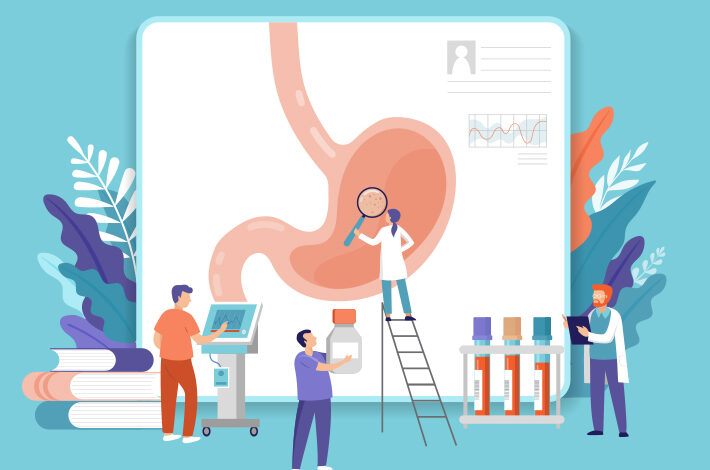Gastroenterology Billing Services: Ensuring Seamless Financial Operations

Gastroenterology, a field crucial for digestive health, requires efficient billing services to ensure the seamless functioning of medical practices. In this article, we delve into the world of gastroenterology billing services, exploring their significance, benefits, and how they contribute to the overall efficiency of healthcare facilities.
1. Introduction
Navigating the financial intricacies of gastroenterology practices can be daunting. Gastroenterology, often referred to as GI (gastrointestinal), encompasses the diagnosis and treatment of disorders related to the digestive system. The demand for specialized care in this field has led to a surge in the number of gastroenterology practices, each striving to provide optimal patient care.
However, amid the commitment to healthcare excellence, the financial operations of these practices can become intricate. This article aims to unravel the complexities associated with gastroenterology billing services, shedding light on how they contribute to the overall efficiency and success of medical practices.
2. Understanding Gastroenterology Billing
Gastroenterology billing involves the intricate process of documenting, coding, and billing for medical services provided in the realm of digestive health. Unlike general medical billing, gastroenterology billing requires specialized knowledge of specific codes and procedures related to procedures such as endoscopies, colonoscopies, and other diagnostic and therapeutic interventions.
Understanding these nuances is crucial for accurate billing, ensuring that healthcare providers are appropriately compensated for the specialized services they offer.
3. The Role of Gastroenterology Medical Billing Services
The complexity of gastroenterology billing necessitates the involvement of specialized medical billing services. These services play a pivotal role in managing the financial aspects of gastroenterology practices, allowing healthcare providers to focus on delivering quality patient care.
Gastroenterology medical billing services encompass a range of activities, including coding, claims submission, payment posting, and denial management. By entrusting these tasks to experts, healthcare providers can streamline their operations and minimize the risk of billing errors.
4. Choosing the Right Gastroenterology Medical Billing Company
Selecting the right partner for medical billing services is a critical decision for gastroenterology practices. The ideal medical billing company should possess expertise in gastroenterology billing, understanding the specific codes, regulations, and challenges associated with the field.
By partnering with a knowledgeable and experienced medical billing company, gastroenterology practices can ensure a tailored approach to their unique billing needs. This not only improves accuracy but also enhances the overall efficiency of financial operations.
5. Key Features of Gastroenterology Billing Services
Efficient gastroenterology billing services exhibit certain key features that set them apart. These features include:
Accurate Coding: Precise coding of procedures and services related to gastroenterology ensures that claims are submitted correctly, minimizing the risk of denials.
Compliance: Gastroenterology billing services must stay abreast of the ever-evolving healthcare regulations to ensure compliance with industry standards.
Timely Claims Submission: Prompt submission of claims accelerates the reimbursement process, preventing delays in payment for services rendered.
Denial Management: Effective handling of claim denials is crucial to maximize revenue and minimize financial losses for gastroenterology practices.
6. Benefits for Healthcare Providers
The adoption of specialized gastroenterology billing services yields numerous benefits for healthcare providers:
Focus on Patient Care: Outsourcing billing services allows healthcare providers to concentrate on patient care, knowing that the financial aspects are in capable hands.
Increased Revenue: Accurate coding, timely claims submission, and effective denial management contribute to improved revenue streams for gastroenterology practices.
Reduced Administrative Burden: Gastroenterology billing services alleviate the administrative burden on healthcare providers, allowing them to optimize their time and resources.
7. Impact on Patient Experience
Efficient billing services extend beyond the financial realm, impacting the overall patient experience positively. When billing processes run smoothly, patients experience:
Clarity in Communication: Transparent communication regarding financial matters instills trust and confidence in patients, fostering a positive doctor-patient relationship.
Reduced Wait Times: Streamlined billing processes contribute to shorter wait times, enhancing the overall efficiency of patient visits.
Enhanced Satisfaction: A seamless financial experience contributes to overall patient satisfaction, reflecting positively on the reputation of the gastroenterology practice.
8. Ensuring Compliance in Gastroenterology Billing
Staying compliant with healthcare regulations is paramount in gastroenterology billing. The complexity of procedures and the ever-changing regulatory landscape necessitate constant vigilance.
Gastroenterology billing services play a crucial role in ensuring compliance by:
Staying Informed: Keeping abreast of changes in billing codes, regulations, and compliance requirements to adapt practices accordingly.
Regular Audits: Conducting regular audits to identify and rectify any discrepancies in coding and billing processes, ensuring adherence to compliance standards.
9. Common Challenges and Solutions
Gastroenterology practices often face challenges in billing, including:
Coding Errors: Addressed by continuous training and regular audits to ensure accurate coding.
Insurance Claim Rejections: Mitigated through thorough claims review and submission of well-documented claims.
Regulatory Changes: Managed by staying informed and adapting billing practices accordingly.
10. Cost-Effectiveness of Outsourcing Billing Services
Outsourcing gastroenterology billing services is often a cost-effective solution for practices. The benefits include:
Reduced Overhead: Eliminating the need for an in-house billing department reduces overhead costs for gastroenterology practices.
Access to Expertise: Gaining access to specialized expertise in gastroenterology billing without the need for extensive training or hiring.
Focus on Core Competencies: Allowing healthcare providers to focus on their core competency—delivering quality patient care.
11. Improving Revenue Cycle Management in Gastroenterology
Optimizing the revenue cycle is crucial for the financial health of gastroenterology practices. Key strategies include:
Efficient Claims Processing: Timely and accurate processing of claims to minimize delays in reimbursement.
Patient Education: Educating patients on billing processes and expectations to reduce confusion and improve collections.
Data Analysis: Leveraging data analytics to identify trends, streamline processes, and enhance overall revenue cycle management.
12. Enhancing Communication with Patients
Effective communication with patients is a cornerstone of successful gastroenterology practices. Billing services contribute to this by:
Transparent Billing Statements: Providing clear and comprehensible billing statements to patients, avoiding confusion and fostering trust.
Accessible Support: Offering accessible channels for patients to address billing queries and concerns, enhancing overall communication.
13. Gastroenterology Billing Trends
Staying abreast of emerging trends in gastroenterology billing is essential for practices aiming to stay competitive. Current trends include:
Automation: Increasingly leveraging automation to streamline billing processes and reduce manual errors.
Telehealth Billing: Adapting billing practices to accommodate the rise of telehealth services in gastroenterology.
Personalized Patient Financial Communication: Tailoring financial communication to individual patient needs, improving understanding and compliance.
14. Conclusion
In conclusion, gastroenterology billing services are integral to the success of medical practices in this specialized field. By ensuring accurate coding, compliance with regulations, and efficient revenue cycle management, these services contribute to the seamless financial operations of gastroenterology practices. As healthcare continues to evolve, the role of specialized billing services becomes increasingly vital in maintaining the delicate balance between quality patient care and financial health.
15. FAQs: Addressing Common Queries
Q1: What makes gastroenterology billing different from general medical billing?
Gastroenterology billing involves specific codes and procedures related to digestive health, requiring specialized knowledge for accurate billing.
Q2: How do billing services contribute to a smoother patient experience?
Efficient billing services streamline financial processes, reducing wait times, and ensuring clear communication, ultimately enhancing the overall patient experience.
Q3: Can outsourcing billing services save costs for gastroenterology practices?
Yes, outsourcing billing services often proves cost-effective, allowing practices to focus on patient care while experts handle financial aspects.
Q4: What challenges do gastroenterology practices commonly face in billing?
Common challenges include coding errors, insurance claim rejections, and staying updated on ever-evolving billing regulations.
Q5: Are there emerging trends in gastroenterology billing practices?
Yes, trends like automation, telehealth billing, and personalized patient financial communication are shaping the future of gastroenterology billing.



